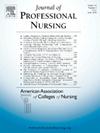基于人工智能的护理教育沟通培训技术:范围综述
IF 2.9
3区 医学
Q1 NURSING
引用次数: 0
摘要
具有先进自然语言处理能力的人工智能(AI)通过提供个性化和交互式通信培训,为驾驭数字通信的复杂性带来了巨大的希望。沟通技巧在护理教育中是至关重要的。然而,缺乏关于其在护理教育中的应用的全面信息。目的对人工智能在护理沟通技巧学习与教学中的应用及经验进行综述。方法在五个数据库中进行检索,以确定2003年1月至2023年6月期间发表的相关论文。采用PAGER框架对结果进行整理、总结和报告。结果共纳入4篇文献。学生的学习经历好坏参半,而教学经历的报告则很少。学习成果包括自我效能感、沟通技巧和知识、学习态度。障碍包括文化和社会障碍、技术问题和后勤挑战。然而,基于人工智能的交流训练提供了即时反馈、专业指导和心理安全。结论综述了人工智能在护理教育沟通培训中的应用。积极和消极的学习经历被报告,但教学经验被低估,学习结果不确定。建议进行涉及所有利益相关者(包括IT开发人员和教师)的更有力的研究。本文章由计算机程序翻译,如有差异,请以英文原文为准。
Artificial intelligence-based technology in communication training in nursing education: A scoping review
Background
Artificial intelligence (AI) with advanced natural language processing capabilities holds significant promise for navigating the complexities of digital communication by providing personalized and interactive communication training. Communication skills are crucial in nursing education. However, there is a lack of comprehensive information about its use in nursing education.
Objective
This scoping review aims to map and synthesize the literature on the applications and experiences relating to learning and teaching nursing communication skills using AI.
Methods
Searches were conducted across five databases, to identify relevant papers published between January 2003 to June 2023. PAGER framework was employed to collate, summarize, and report the results.
Results
Four articles were included in this review. Students had mixed learning experiences, while teaching experiences were minimally reported. Learning outcomes included self-efficacy, communication skills and knowledge, and learning attitude. Barriers included cultural and social barriers, technical problems, and logistical challenges. Nevertheless, AI-based communication training offers instant feedback, professional guidance, and psychological safety.
Conclusions
This scoping review summarized the application of AI in communication training in nursing education. Positive and negative learning experiences were reported, but teaching experiences were underreported and learning outcomes were inconclusive. More robust studies involving all stakeholders, including IT developers and teachers, are recommended.
求助全文
通过发布文献求助,成功后即可免费获取论文全文。
去求助
来源期刊
CiteScore
4.80
自引率
8.00%
发文量
153
审稿时长
52 days
期刊介绍:
The Journal will accept articles that focus on baccalaureate and higher degree nursing education, educational research, policy related to education, and education and practice partnerships. Reports of original work, research, reviews, insightful descriptions, and policy papers focusing on baccalaureate and graduate nursing education will be published.

 求助内容:
求助内容: 应助结果提醒方式:
应助结果提醒方式:


